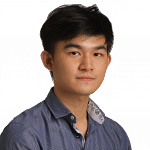SINGAPORE – The goal to increase the number of artificial intelligence (AI) practitioners in Singapore to 15,000 can be achieved quickly, thanks in part to the growing number of AI courses in universities here and reskilling programmes, said experts.
Most of the new faces are likely to be trained locally to build tools using existing AI models, they added, while existing tech employees from other fields, like metaverse technologies, can also contribute to the pool by reskilling.
On Dec 4, Deputy Prime Minister Lawrence Wong announced the second edition of Singapore’s AI strategy, focusing on ways to prepare the economy to embrace AI, in order to remain competitive.
As part of the new plan – dubbed National AI Strategy 2.0: AI for the Public Good for Singapore and the World – Singapore aims to triple its AI workforce by training locals and hiring from overseas.
The group includes data and machine-learning scientists and engineers who are the backbone of translating AI into real-world apps, said DPM Wong, who is also Minister for Finance.
Details of when this is intended to happen were not given.
Singapore has made strides in AI to put its name on the map. Today, it is home to at least 1,100 tech-related start-ups, said DPM Wong. Major AI tech companies like Google and Microsoft have also set up regional headquarters here.
DPM Wong said: “We are acutely aware that every leading city in the world today wants to be an AI hub... We cannot compete head-on in terms of size or fiscal resources, but we do have several factors in our favour: a highly skilled workforce, a highly wired-up society and, importantly, a trusted ecosystem, where things work and where we can make things happen.”
The revised strategy has been a long time coming, as schools like the National University of Singapore (NUS) have anticipated the growth of AI, introducing more modules and making AI a compulsory introductory course for all computer science students, said the university’s computing associate professor Soo Yuen Jien.
Singapore’s revamped strategy signals to the industry that it is doubling down on its bet on AI, he added.
Many computing modules have some links to AI, and given that there are more than 4,000 students across all levels at the computing school at any given time, it is not a stretch for Singapore to hit its target in the short term, said Prof Soo.
Likewise, at Nanyang Technological University, new AI-related courses like the Bachelor of Applied Computing in Finance, help students to specialise in applying AI to various fields, said Nanyang Business School deputy dean Boh Wai Fong.
She said: “The target of 15,000 is not impossible. There are many courses that bring graduates and undergrads into the sector, and coupled with talent from abroad, we should be well-positioned to develop the talent needed.”
Most of the workers who form the 15,000 are likely to be trained locally. This is due to the rising costs of bringing in foreign talent to fill technical roles, said Associate Professor Ben Leong from the NUS School of Computing.
It is likely that those in the new wave of AI talent will focus on building apps using existing AI models, said Prof Leong. Most AI tools today do not need to be developed from scratch, but can work off pre-built application programming interfaces like ChatGPT, allowing those without deep tech skills to enter the field.
To prepare students for the demand for AI apps, NUS has introduced courses to teach students to build apps based on ChatGPT and AI image generators like Dall-E and Stable Diffusion.
Singapore’s emphasis on reskilling the workforce will play a part to funnel workers to take on AI, and keep the workforce nimble for new opportunities in tech, said SAP Labs Singapore managing director Manik Saha. The software developer is among tech companies here that offer upskilling courses to help workers find new jobs.
Singapore has consistently scored high in global rankings in digital competitiveness, noted assistant professor of computer science Soujanya Poria at the Singapore University of Technology and Design, adding that this is largely thanks to its coordinated efforts to digitalise.
“The new strategy is robust and shows the whole system can work together to support AI development. It starts from schools to government supporting the vision by pushing for adequate infrastructure,” said Prof Soujanya.
Prof Leong from NUS, who is also the director of the Centre for Computing for Social Good and Philanthropy – a school to encourage students to serve the community and to cultivate a philanthropic ethos among future generations of tech leaders – said: “(Most new hires) will probably work on simpler AI models because harder ones will require more training. That’s where foreign manpower might come in, but they are not easy to get now because of rising costs.”
He added: “AI gets very deep, but you can’t churn out experts in a hurry.”


